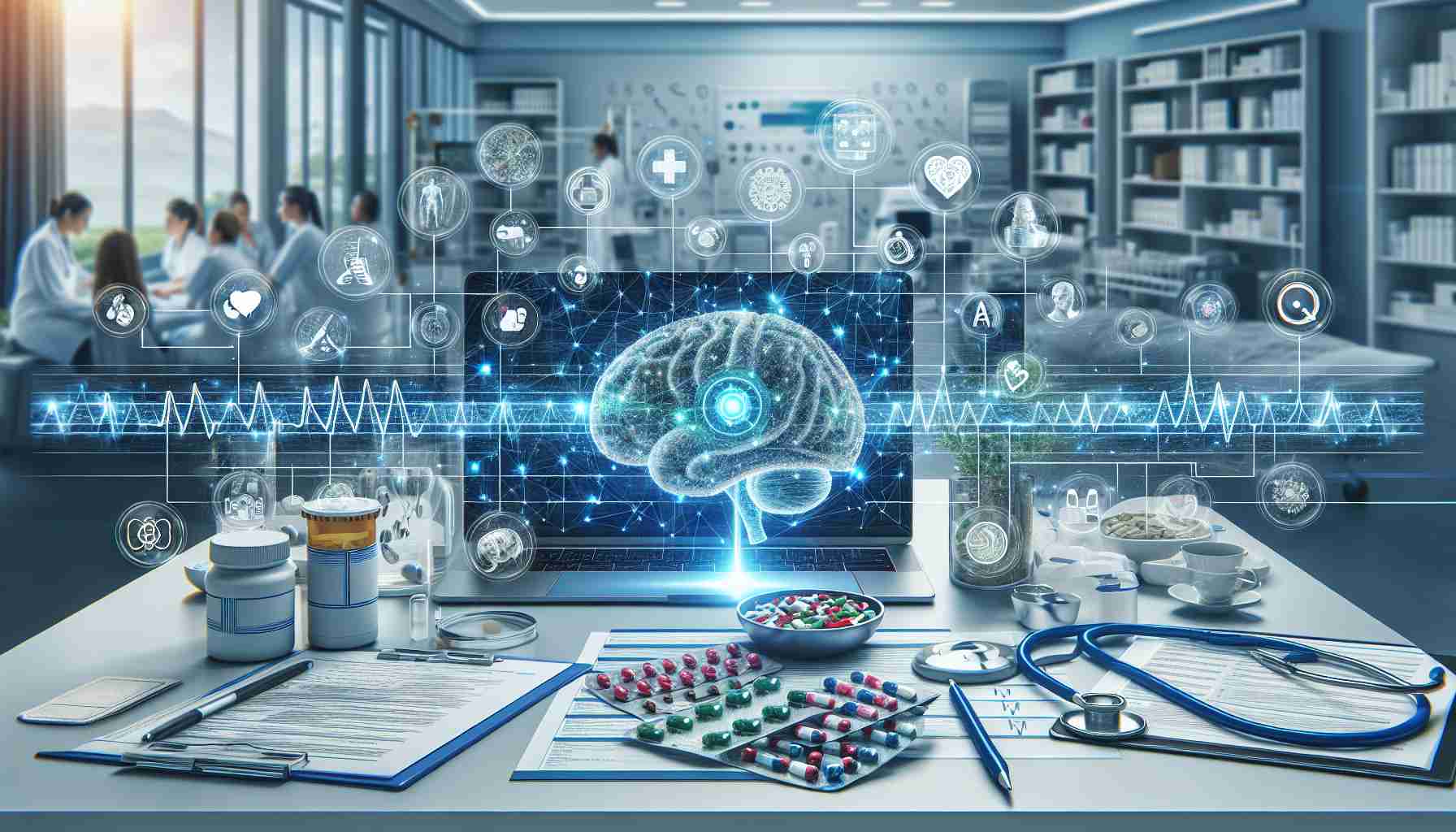AI Innovations in Healthcare Sector
Artificial intelligence is revolutionizing healthcare practices worldwide, offering a potential to transform patient care, diagnosis, and treatment approaches while reducing costs. The global market value of AI-based healthcare solutions is rapidly increasing, projected to grow over sixfold by 2030. This technological advancement presents a transformative opportunity for the healthcare industry.
Integration of AI in Healthcare Processes
AI implementation in healthcare facilities can optimize various stages of patient care processes. From streamlining doctor schedules for efficient patient appointments to accelerating documentation processes during consultations, artificial intelligence plays a crucial role in enhancing operational efficiency. Additionally, AI can aid in diagnostic procedures by analyzing images and supporting medical professionals in making informed decisions.
Future Prospects and Challenges
Although AI tools are being utilized in administrative and clinical processes in the healthcare sector, the full potential of AI in Polish healthcare is yet to be realized. While AI algorithms are increasingly prevalent in healthcare operations, challenges such as data quality and integration persist. Greater collaboration and trust among stakeholders are crucial for creating a secure environment for AI development in healthcare.
Optimizing Patient Care through AI
The utilization of AI in healthcare settings has the potential to significantly enhance the quality of patient care, streamline diagnostic processes, and improve therapeutic outcomes while simultaneously reducing costs. As healthcare leaders invest in AI-driven solutions, there is a growing emphasis on leveraging data to identify trends, improve patient recruitment for treatment programs, and enhance disease diagnosis practices. The future of healthcare lies in harnessing AI technologies to revolutionize medical practices and elevate patient care standards.
Expanding Applications of AI in Healthcare
Artificial intelligence continues to expand its applications in the healthcare sector, reaching new frontiers in improving patient outcomes and operational efficiency. Beyond the traditional roles of AI in diagnosis and treatment, innovative uses include predictive analytics for personalized medicine, proactive monitoring of patient health, and even virtual health assistants for patient interaction. The versatility of AI in addressing various healthcare challenges positions it as a vital tool for modern medical advancements.
Key Questions and Answers
1. How is AI Enhancing Healthcare Efficiency and Patient Care?
AI enhances healthcare efficiency through automation of routine tasks, personalized treatment recommendations based on patient data analysis, and real-time monitoring for early intervention. By streamlining processes and providing valuable insights, AI contributes to better patient care outcomes.
2. What Are the Main Challenges Associated with AI in Healthcare?
One of the key challenges is ensuring data privacy and security due to the sensitivity of medical information. Integrating AI systems with existing healthcare infrastructure also poses technical challenges in terms of compatibility and reliability. Moreover, the ethical implications of AI decision-making in patient care raise concerns about bias and transparency.
Advantages and Disadvantages of AI in Healthcare
Advantages:
– Improved accuracy and speed in diagnosis through deep learning algorithms.
– Enhanced patient engagement and support through virtual health assistants.
– Cost savings through efficient resource allocation and prevention of medical errors.
Disadvantages:
– Potential job displacement as AI automates certain tasks traditionally performed by healthcare professionals.
– Ethical dilemmas regarding AI decision-making and the need for human oversight.
– High initial costs of AI implementation and ongoing maintenance requirements.
Exploring the Future of AI in Healthcare
The future of AI in healthcare holds promising opportunities for advancing medical research, improving treatment outcomes, and empowering patients with personalized care solutions. By addressing the challenges of data integration, privacy concerns, and ethical considerations, the healthcare industry can harness the full potential of AI to revolutionize healthcare delivery and improve overall patient well-being.
For further insights on the impact of AI in healthcare, visit World Health Organization for global perspectives on healthcare innovation and policy development.

















